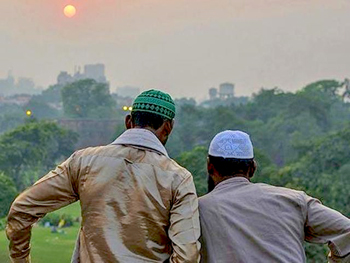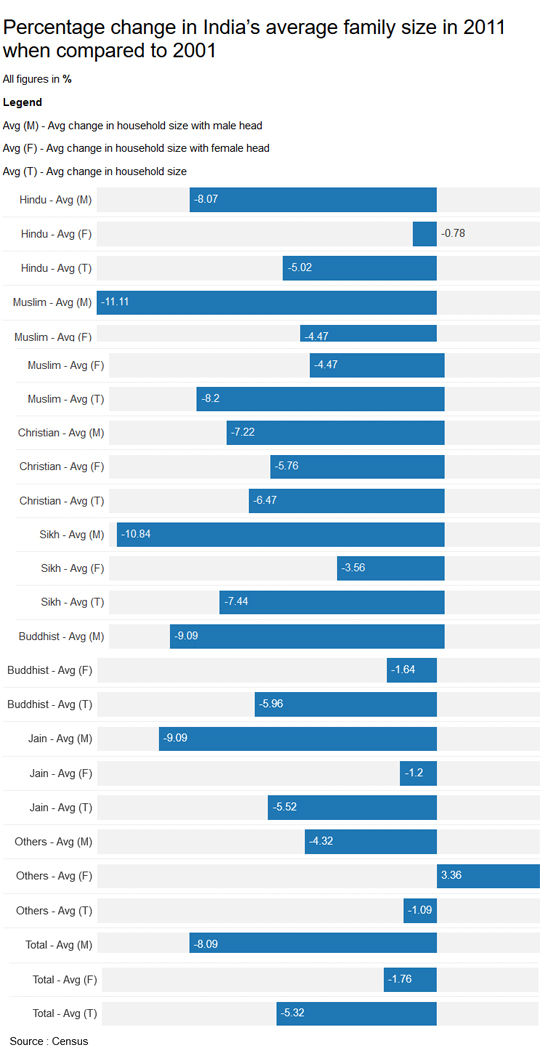New Delhi, May 22: Indian families are getting smaller and the decline is sharpest among Muslims, religious census data released on Friday said, in what could be signs of rising literacy levels in the community.

The latest data said the country's average family size in 2011 was 4.45 members, down from 4.67 a decade earlier, a drop of 5.3%.
In the Muslim community the average family size fell from 5.61 to 5.15, the report released by the home ministry said. The reduction was sharper -- 11.1% -- for Muslim households headed by men while for families headed by women it was 4.47%.
The Muslim community is often targeted by Hindu right-wing groups of having large families and a higher population growth rate. Last year, BJP parliamentarian Sakshi Maharaj and Vishwa Hindu Parishad (VHP) Sadhvi Prachi had separately asked Hindu women to bear at least four children to counter the growth in Muslim population.
Religious population data released last year showed that the community grew by 24.6 percent between 2001 and 2011. At 17.22 crore, the community formed 14.2% of India's 121 crore population. With a population of 96.63 crore, Hindus constitute 79.8% of the population.
Data released on Friday also showed the average size of Hindu families declined by 5.02% over the decade, Christian households by 6.47%, Sikh by 7.44%, Buddhist by 5.96% and Jain by 5.5%.
The average household size was higher in male headed households as compared to those headed by females across all religious communities.
Overall, “Christians had the highest percentage of households headed by females (17.4%) followed next by Buddhist (15.9%). The lowest percentage of female headed households is in Jain community (11.5%),” the report said.
The data showed that the difference in household size between different religious communities wasn't as big as was often made out. Besides, the continuing decline has also narrowed the gap in family size between different religious communities.
In 2011, the average size of a Hindu family was 4.35. In contrast, a Muslim household had 5.15 members, a Christian household 4.05, Sikh household 4.85, Buddhist household 4.1 and a Jain household 4.45 members.
In 2011, an average Muslim family just had 0.8 more persons than a Hindu household as compared to 1.03 persons in 2001.






Comments
Senseless figures....Bullshit...... The dept has no other work.... we know the quality of the people, who come to our houses to collect the data... their goal is to complete the work at any cost.. They are not bothered about the correctness.......
Add new comment